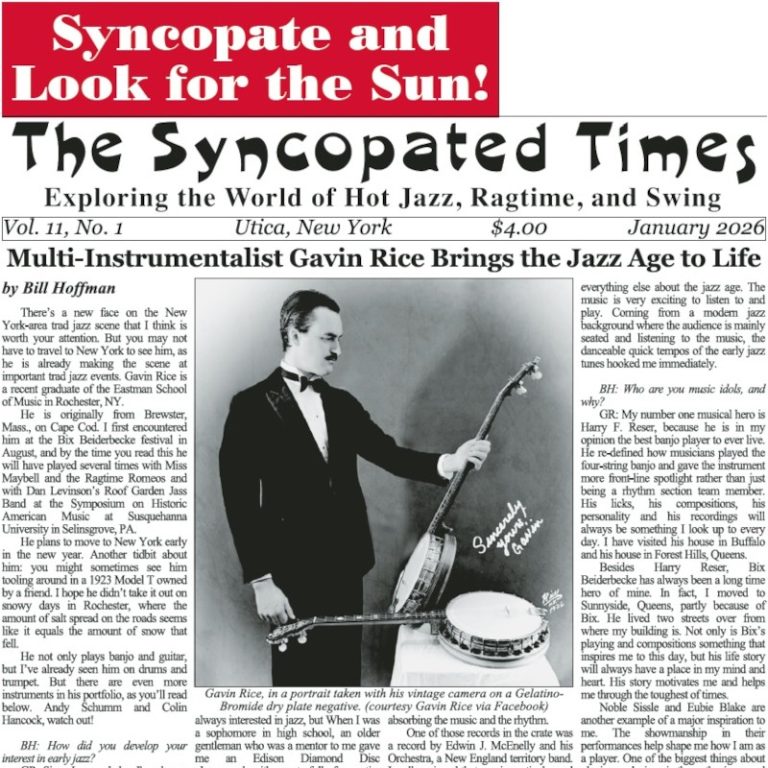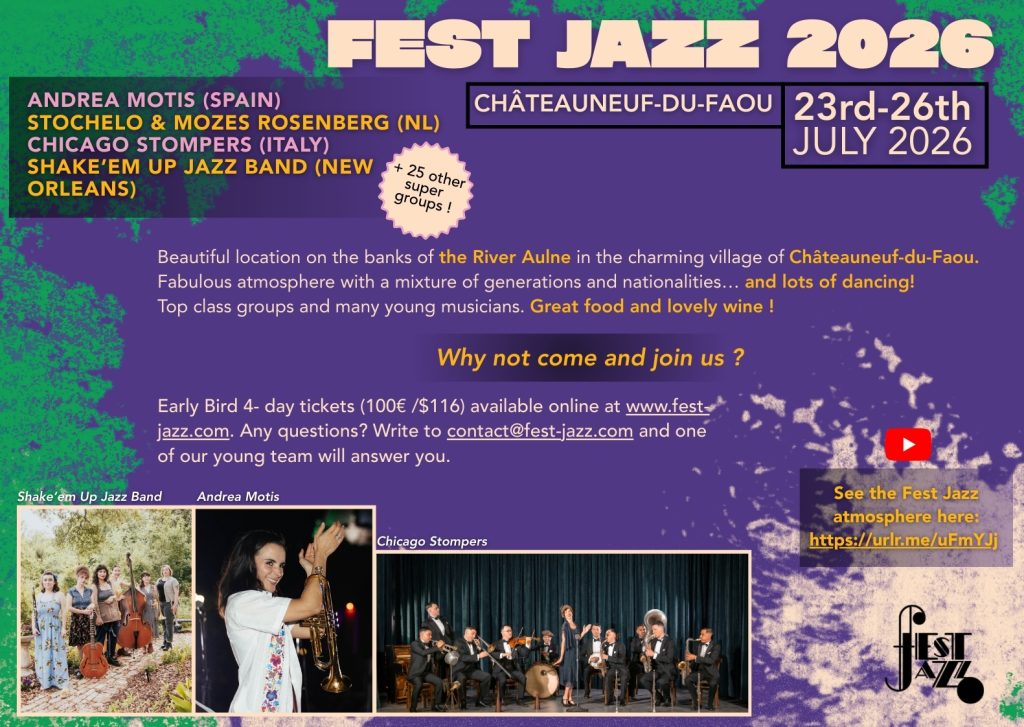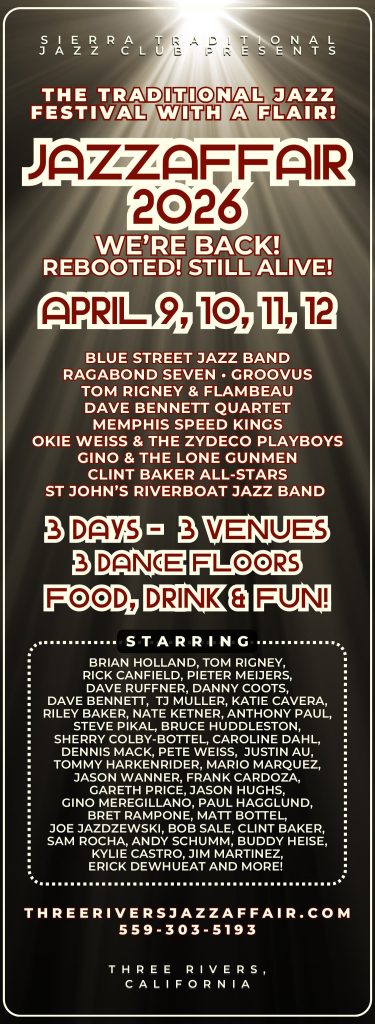Over the five fascinating years I’ve been interviewing jazz musicians, a curious trend has emerged. It has interested, confounded and occasionally annoyed me—the last probably due to a (misguided) sense that my musical passions and practices are being slighted by implication. I’m talking about the tendency for pro musicians to begin their journey with piano lessons, before switching the instrument out for another one that eventually makes them famous—be it brass, woodwind, strings or their own voice.
Sometimes the player keeps up piano as a secondary interest: clarinetist Ewan Bleach (of Frog and Henry, Tuba Skinny, and more) learned keys before making woodwind his professional focus. But he never lost his love of tickling the ivories, telling me last year: “When I learn a song, I always learn it on the piano.” He performs solo gigs playing keys with one hand and licorice stick with the other, while his website describes him as “a clarinetist, saxophonist, pianist, singer, bandleader [and] composer.”
But pride in one’s piano-playing roots seems rare amongst pro jazz musicians, most of whom seem to drop the instrument—and any mention of it in their curriculum musicae—sooner or later. Of the folks I’ve spoken to, the following all began on piano before becoming noted pros on some other instrument: Hailey Brinnel (now known for her trombone playing), Corina Kwam
You've read three articles this month! That makes you one of a rare breed, the true jazz fan!
The Syncopated Times is a monthly publication covering traditional jazz, ragtime and swing. We have the best historic content anywhere, and are the only American publication covering artists and bands currently playing Hot Jazz, Vintage Swing, or Ragtime. Our writers are legends themselves, paid to bring you the best coverage possible. Advertising will never be enough to keep these stories coming, we need your SUBSCRIPTION. Get unlimited access for $30 a year or $50 for two.
Not ready to pay for jazz yet? Register a Free Account for two weeks of unlimited access without nags or pop ups.
Already Registered? Log In
If you shouldn't be seeing this because you already logged in try refreshing the page.




